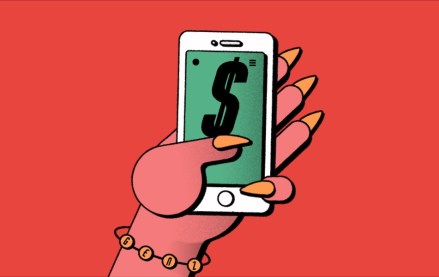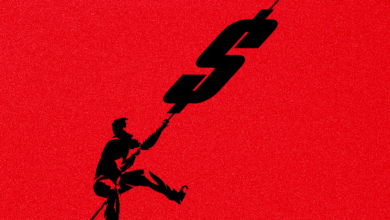Why publishers are hesitant to add their chatbots to OpenAI’s GPT Store

By Sara Guaglione • January 26, 2024 • 5 min read •

OpenAI launched an app store called GPT Store on Jan. 10 where developers can share their custom ChatGPT chatbots powered by generative artificial intelligence, but digital publishing companies haven’t been all that eager to build chatbots — or add the chatbots they’ve already built — and make them available on OpenAI’s app store just yet.
Media execs pointed to a few reasons why they haven’t made full investments there, such as their own limited resources to explore the store’s capabilities, as well its lack of defined audience and revenue growth opportunities.
However, of the half dozen media companies that Digiday contacted that had experimented with building custom chatbots on their own sites, one publisher had started to test using the GPT Store. Ingenio added three generative AI chatbots it had already built for its own site Astrology.com to the GPT Store on Jan. 22.
Publishers started developing custom generative AI chatbots last year in the hopes that the interactive products would serve as a retention tool to keep readers onsite and to get them to consume more content, by providing improved search and content recommendations or entertainment in the form of chatbot games. Last year, BuzzFeed’s AI-powered chatbot game had an average time spent four times higher than static quizzes, CEO Jonah Peretti said during an earnings call.
Josh Jaffe, Ingenio’s president of media, said the company will not put many resources into the GPT Store but will “tiptoe in,” due to the lack of a business incentive to do more than that at the moment. “Ultimately, how much new audience [or] money is this going to generate?” he said.
OpenAI did not respond to multiple requests for comment for this story.
Not enough resources
Rafat Ali, founder and CEO of B2B travel publisher Skift, said the company hasn’t done much with its AI chatbot beyond minimal updates since launching it last May. While Ali said this is due to focusing on growing other parts of the business, it could also be another sign that publishers are easing off their AI investments this year.
“No major plans yet [other than] wait and watch on major new developments,” Ali said. “We haven’t had time to look at anything further on the [OpenAI GPT] Store or AI. We just have our hands full.”
Jacob Salamon, vp of business development at Trusted Media Brands, another company that is actively experimenting with building AI-powered tools (like a meal planner and and a search tool) also said the company is continuing to focus on internal AI-related projects.
“We currently have projects in production [and] testing that could certainly lend themselves to partnership opportunities in the chatbot store down the road. But at the current moment, we are laser focused on getting the best product built for audiences, so it is not something we have yet explored but are definitely open to,” Salamon said in an email.
No real audience or revenue opportunities yet
In addition to the GPT Store lacking monetization opportunities, Jaffe said he was skeptical that people using custom chatbots from the store would lead to any interest in visiting the publisher’s sites.
Ingenio makes some money from its chatbots on its own site Astrology.com, selling $5 bundles after users hit a limit of five interactions with the chatbot. Jaffe declined to share how much money the company is making or how many subscriptions it’s sold from the chatbots on its sites.
“Will we be able to do that in the GPT Store? I have no idea… I don’t know what the business model actually is in the GPT Store yet. I don’t think anybody understands exactly how that’s going to work,” Jaffe said. He added that he had not heard from OpenAI’s team about any developments that could help publishers, and OpenAI had not provided any guidance since the store’s launch.
Only people who subscribe to OpenAI’s paid ChatGPT Plus or Team tiers ($20 or $25 a month, respectively) can make and use custom GPTs, though the company said in its announcement of the store’s launch that it will create a revenue program in Q1 to let developers get paid based on user engagement with their GPTs.
Although Ingenio chose not to do anything with the GPT Store for over a week after its launch, the company then decided to add the three chatbots it built to the GPT Store, with the hopes that the massive user adoption of ChatGPT means the store would grow in popularity over time — and that they would benefit from being early entrants, Jaffe said.
“Sometimes if you wait too long, you really face an uphill battle in gaining visibility in these platforms,” Jaffe said. And that’s certainly a challenge now, he said, with just a few GPTs featured on the Store’s main page.
It doesn’t hurt that the process was a light lift. Ingenio had already developed the prompts — after lots of testing and iterations — behind its three chatbots so it took just a couple hours to make them available in the GPT Store, Jaffe said.
Lack of features and functionality
Tech leads at another digital publisher, requesting anonymity as its company undergoes testing for different applications of generative AI technology, expressed concern that the GPT Store did not have features such as user comments and ratings, which would help gauge which GPTs and specific audiences were worth investing more resources into. They also noted that it hasn’t yet been proven that custom GPTs are able to reach a wide audience. In other words, the app store still felt like it was in the beta phase.
“I feel like it’s going to be more of a B2B type place — that’s where the real winners are going to be,” Jaffe said.
https://digiday.com/?p=532816
More in Media

Publicis Groupe debuts new CoreAI platform and €300 million AI investment
January 25, 2024 • 5 min read
CoreAI will focus on insights and strategy, media planning, creative and production, software development and operations.

Research Briefing: Gen Z gets breaking news first through social media like TikTok
January 25, 2024 • 1 min read
In this week’s Digiday+ Research Briefing, we examine how Gen Z consumes the news, how agencies expect revenues and ad spending to rebound in 2024, and how advertisers are sticking with X at least through the Super Bowl, as seen in recent data from Digiday+ Research.

Media Briefing: Ad buyers say it’s still too early for them to pick which alternative IDs to prioritize
January 25, 2024 • 9 min read
Buyers say that the money is still not moving towards consolidation of alternative identifiers.


